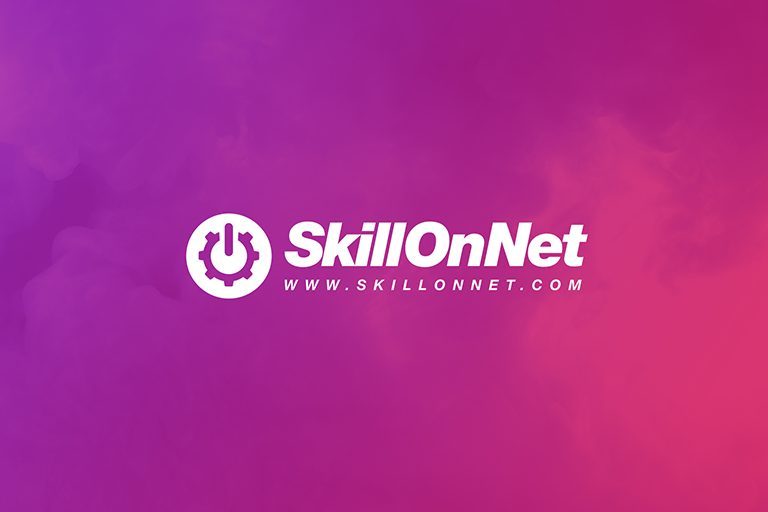SkillOnNet Faces Regulatory Scrutiny

iGaming operator and supplier SkillOnNet has faced scrutiny from the Danish Gambling Authority. The regulatory body has reprimanded the company for its inadequate processes in managing customer relationships and mitigating money laundering risks. This incident sheds light on the importance of robust regulatory compliance measures within the iGaming industry.
Inspection Findings
The Danish Gambling Authority’s inspection uncovered several deficiencies within SkillOnNet’s operations. Among these findings was the absence of a comprehensive risk assessment procedure to identify and address potential risks associated with the company’s business model, particularly concerning its products and payment solutions. This oversight highlights the critical need for thorough risk management protocols in the iGaming sector.
Furthermore, the inspection revealed shortcomings in SkillOnNet’s written procedures and record-keeping practices related to internal controls, which violated anti-money laundering (AML) legislation. Effective documentation and adherence to regulatory requirements are imperative for maintaining the integrity of financial systems and preventing illicit activities such as money laundering.
Regulatory Response
In response to these findings, the Danish Gambling Authority issued three orders to SkillOnNet, demanding improvements in various areas, including risk assessments, business processes, and documentation of internal controls. Additionally, the authority issued two reprimands to the company for failing to comply with obligations related to customer due diligence procedures and whistleblower protection under the Anti-Money Laundering Act.
It is essential for regulatory bodies to hold operators accountable for maintaining compliance with established standards and regulations to uphold the integrity of the iGaming industry and safeguard consumers’ interests.
Obligations and Remedial Actions
The orders issued by the Danish Gambling Authority impose specific obligations on SkillOnNet to rectify the identified deficiencies. Within a stipulated timeframe, the company is required to submit revised risk assessments, enhance its business procedures for internal control, and provide documentation demonstrating the implementation of internal controls.
While the reprimands do not necessitate immediate action, SkillOnNet is expected to address the underlying issues to prevent future compliance violations. This underscores the ongoing responsibility of operators to uphold regulatory standards and continuously improve their practices.
Continued Scrutiny and Compliance Challenges
The regulatory scrutiny faced by SkillOnNet in Denmark follows a settlement with the UK Gambling Commission in May 2023, where the company agreed to pay £305,150 for similar compliance breaches. These consecutive incidents underscore the challenges that iGaming operators encounter in navigating complex regulatory landscapes across multiple jurisdictions.
As the iGaming industry continues to evolve, operators must prioritize robust compliance measures to mitigate regulatory risks and ensure sustainable operations. This includes investing in comprehensive risk management frameworks, enhancing internal controls, and fostering a culture of regulatory compliance throughout the organization.
Conclusion
The reprimand from the Danish Gambling Authority serves as a stark reminder of the regulatory obligations that iGaming operators must uphold to maintain trust and credibility within the industry. SkillOnNet’s experience highlights the importance of proactive compliance efforts and the consequences of failing to meet regulatory expectations.
Moving forward, it is imperative for all stakeholders in the iGaming ecosystem to collaborate effectively, share best practices, and adapt to evolving regulatory requirements. By prioritizing compliance and adopting a proactive approach to risk management, operators can mitigate regulatory risks, protect consumers, and sustain long-term success in the dynamic iGaming landscape.
FAQ:
What is SkillOnNet?
SkillOnNet is an iGaming operator and supplier involved in providing gaming solutions and services within the online gambling industry.
What were the findings of the Danish Gambling Authority’s inspection?
The inspection revealed deficiencies in SkillOnNet’s processes for managing customer relationships, conducting risk assessments, and complying with anti-money laundering legislation.
What actions did the Danish Gambling Authority take against SkillOnNet?
The authority issued three orders and two reprimands to SkillOnNet for various compliance breaches, demanding remedial actions and improvements in risk management and internal controls.
What obligations were imposed on SkillOnNet by the regulatory orders?
SkillOnNet was required to submit revised risk assessments, enhance business procedures for internal control, and provide documentation demonstrating the implementation of internal controls within specified timeframes.
How did SkillOnNet respond to the reprimands?
SkillOnNet revised its business procedures and whistleblower scheme following the reprimands, although these actions were not mandated by the regulatory authority.
What challenges do iGaming operators face in regulatory compliance?
iGaming operators must navigate complex regulatory landscapes across multiple jurisdictions, requiring robust compliance measures and ongoing efforts to meet regulatory expectations.
Why is regulatory compliance important in the iGaming industry?
Regulatory compliance ensures the integrity of financial systems, prevents illicit activities such as money laundering, and protects consumers from potential harm associated with online gambling.
What lessons can other iGaming operators learn from SkillOnNet’s experience?
Other operators can learn the importance of proactive compliance efforts, effective risk management, and fostering a culture of regulatory compliance to mitigate regulatory risks and ensure sustainable operations.
How can iGaming operators enhance their compliance efforts?
Operators can invest in comprehensive risk management frameworks, enhance internal controls, and collaborate with regulatory authorities and industry peers to stay abreast of evolving regulatory requirements.
What are the long-term implications of regulatory non-compliance for iGaming operators?
Non-compliance with regulatory requirements can lead to financial penalties, reputational damage, and loss of consumer trust, ultimately jeopardizing the viability and sustainability of an operator’s business.
Ash
I like to keep it short. I am a writer who also knows how to rhyme his lines. I can write articles, edit them and also carve out some poetic lines from my mind. Education B.A. - English, Delhi University, India, Graduated 2017.
Recommended Posts

Wazdan Unveils €4M Mystery Drop™ Promotion
April 29, 2024

Emerging Leaders in iGaming
April 29, 2024

AFJEL Urges iGaming Regulation in France
April 29, 2024
